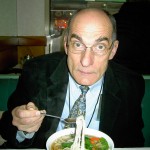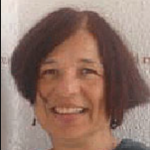 Vic Sizemore’s fiction is published or forthcoming in StoryQuarterly, Southern Humanities Review, The Good Men Project, Connecticut Review, storySouth, Sou’wester, Blue Mesa Review, Real South, Superstition Review, A River & Sound Review, [PANK], and elsewhere. Excerpts from his novel The Calling are published in Connecticut Review, Portland Review, Prick of the Spindle, Burrow Press Review, Pithead Chapel, Letters and elsewhere. Sizemore’s fiction has won the New Millennium Writings Award for Fiction, and been nominated for Best American Nonrequired Reading and a Pushcart Prize. You can find Vic at www.vicsizemore.wordpress.com
Vic Sizemore’s fiction is published or forthcoming in StoryQuarterly, Southern Humanities Review, The Good Men Project, Connecticut Review, storySouth, Sou’wester, Blue Mesa Review, Real South, Superstition Review, A River & Sound Review, [PANK], and elsewhere. Excerpts from his novel The Calling are published in Connecticut Review, Portland Review, Prick of the Spindle, Burrow Press Review, Pithead Chapel, Letters and elsewhere. Sizemore’s fiction has won the New Millennium Writings Award for Fiction, and been nominated for Best American Nonrequired Reading and a Pushcart Prize. You can find Vic at www.vicsizemore.wordpress.com
Vic, in “A Fisher of Men,” an excerpt from your novel Seekers, Caleb, a preacher’s son, knows that “Satan doesn’t miss an opportunity.” He finds himself sexually attracted to his college roommate, bandmate, and friend John, but pushes his feelings away with the help of the Bible and “prays and thanks God for forgiving his iniquity.” He confronts temptation head-on with Bible verses and plans to proselytize the wayward souls of a neighborhood gay bar. Does his faith and family background preclude deeper forms of soul-searching and acceptance of his own homosexuality, or do aspects of self-realization and self-acceptance take place later in the novel?
Caleb’s torment is born of the tug between his earnest resolve to have victory over his sexual orientation, which he honestly believes to be a sin against God and nature, and his longing to explore this facet of his identity because it feels so natural to him. He does engage in deeper soul-searching later, and even questions the tenets of his childhood faith, but he cannot shrug off an entire life of Fundamentalist teaching–at least not in time to avert tragedy. This leads him to swing between extremes, which is not an uncommon way young people raised in this environment struggle to figure out who they are.





